Genre Philosophy. Page - 3
No registration or authorisation! And it is all for free!
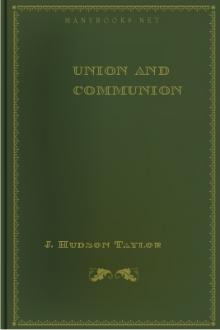
cannot be stationary; it must either decline or grow. Despite all the unworthy fears of our poor hearts, Divine love is destined to conquer. The bride exclaims:--Thine ointments have a goodly fragrance; Thy name is as ointment poured forth; Therefore do the virgins love Thee. There was no such ointment as that with which the High Priest was anointed: our Bridegroom is a Priest as well as a King. The trembling bride cannot wholly dismiss her fears; but the unrest and the longing become

s the distinctionbetween eating and digestion.The following definition of teaching, contributed by a former statesuperintendent of schools, is rich in suggestion: "Teaching is the process of training an individual through theformation of habits, the acquisition of knowledge, the inculcation ofideals, and the fixing of permanent interests so that he shall becomea clean, intelligent, self-supporting member of society, who has thepower to govern himself, can participate in noble enjoyments,
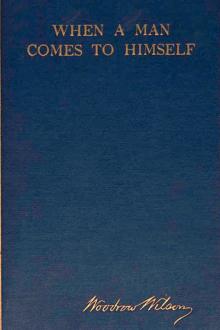
The practicabilityof every reform is determined absolutely and always by "thecircumstances of the case," and only those who put themselves intothe midst of affairs, either by action or by observation, can knownwhat those circumstances are or perceive what they signify. Nostatesman dreams of doing whatever he pleases; he knows that it doesnot follow that because a point of morals or of policy is obvious tohim it will be obvious to the nation, or even to his own friends;and it is the

large! I resolved to begin at the beginning and study some of their doings before I probed their reason. Fate threw in my way a connection by marriage, a naval man, who on board his ship at Bombay had had a visit from a wandering Hindu who offered to show a sight the sahibs could never have seen before. He agreed, and standing a great brass vessel of water on the deck the man stood off at a great distance and in the sight of many people beckoned, and the water rose snake-like in the jar and
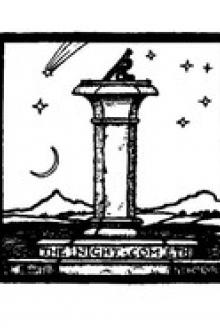
s valuable because it clearly shows what really is the origin of the idea of Space. It proves that the idea of Space is a representation of one condition of our Activity. It is because the primary work of Thought is to represent the forms of our dynamic Activity that we find the idea of Space so necessary and fundamental.But it will perhaps be argued that our ordinary sensations carry with them a spatial meaning and implication, and that indirectly, therefore, our sensations do supply us with

ne was to appear not only for an appointed work, but for an appointed period: "He shall give you another Comforter, that he may abide with you forever"--eis ton aiõna. If we translate literally and say "for the age," it harmonizes with a parallel passage. In giving the great commission, Jesus says: "And lo, I am with you alway, even unto the end of the age." Here his presence by the Holy Ghost is evidently meant. The perpetuity of that presence is guaranteed,
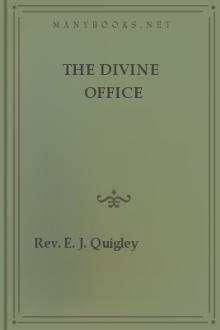
pifies the pre-natal stage of life.Lauds, the office of dawn, seems to resemble the beginnings ofchildhood. Prime recalls to him youth. Terce, recited whenthe sun is high in the heavens shedding brilliant light, symbolisesearly manhood with its strength and glory. Sext typifies matureage. None, recited when the sun is declining, suggests man in hismiddle age. Vespers reminds all of decrepit age gliding gentlydown to the grave. Compline, night prayer said before sleep,should remind us of the

But Greece was not perfect. Her poetical and religious ideals were far above her practice; therefore she died, that her ideals might survive to ennoble coming ages. Rome, too, left the world a rich inheritance. Through the vicissitudes of history her laws and ordered government have stood a majestic object-lesson for the ages. But when the stern, frugal character of her people ceased to be the bone and sinew of her civilization, Rome fell. Then came the new nations of the North and founded a

ceiving that it is something unusually lively, kicksand crows most lustily, to the unspeakable delight of all thechildren and both the parents: and the dinner is borne into thehouse amidst a shouting of small voices, and jumping of fat legs,which would fill Sir Andrew Agnew with astonishment; as well itmight, seeing that Baronets, generally speaking, eat prettycomfortable dinners all the week through, and cannot be expected tounderstand what people feel, who only have a meat dinner on one
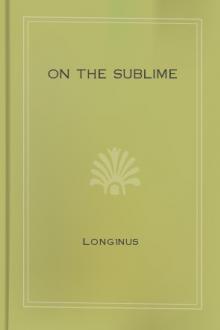
ecause he did not know them, but because he estimated them correctly. He may have suffered, as we suffer, from critics who, of all the world's literature, know only "the last thing out," and who take that as a standard for the past, to them unfamiliar, and for the hidden future. As we are told that excellence is not of the great past, but of the present, not in the classical masters, but in modern Muscovites, Portuguese, or American young women, so the author of the Treatise may have